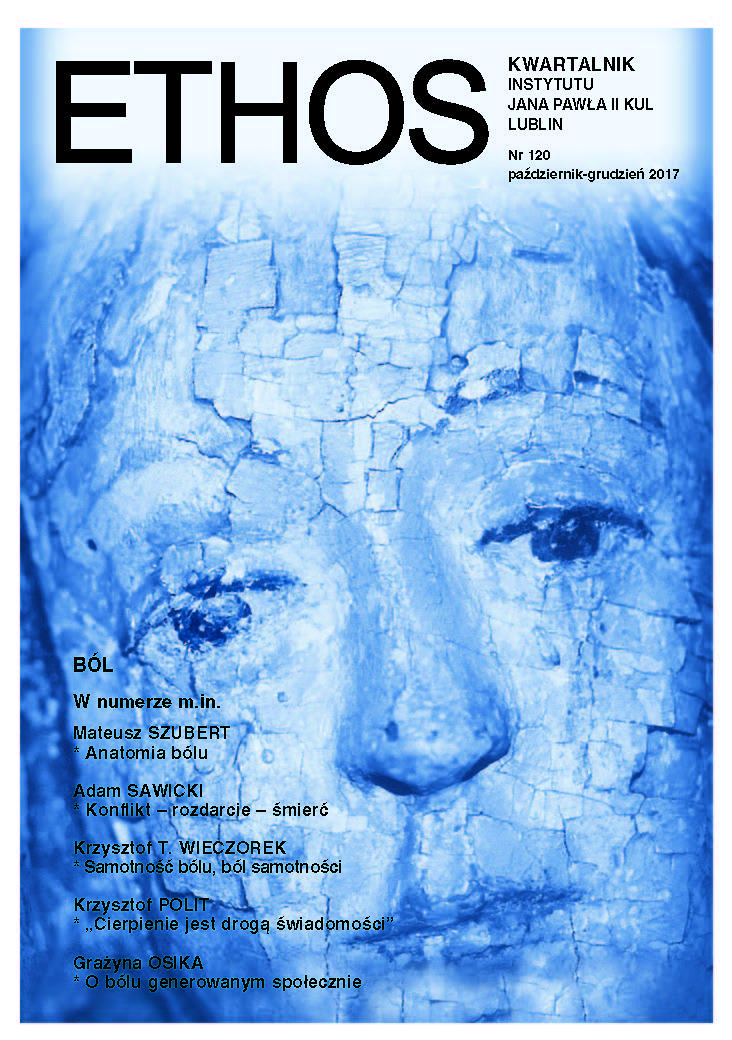O BÓLU NIESŁYSZENIA BOGA I BÓLU SŁABOŚCI. „Milczenie” – najważniejsza spowiedź Martina Scorsesego
The Pain of Not Hearing God, and the Pain of Weakness:
Silence, or Martin Scorsese’s Most Important Confession
Author(s): Sławomir BobowskiSubject(s): Christian Theology and Religion, Sociology
Published by: Katolicki Uniwersytet Lubelski Jana Pawła II - Instytut Jana Pawła II, Wydział Filozofii
Keywords: faith; uncertainty; weakness; suffering; art; beauty
Summary/Abstract: Man’s complaint about the silence of God, about the impossibility of hearing His voice, and thus about His alleged absence, has been ever-present in history. It has been accompanied by man’s lament over his own weakness and, above all, over his propensity for falling and sin. Both these lamentations have been convincingly expressed in Shusaku Endo’s novel Silence, as well as in its film adaptation made by Martin Scorsese. In the present article, I attempt to show the immersion of the novel, as well as of the movie, in a broadly understood Christian tradition of theology and philosophy (encompassing the Bible, as well as the writings of the Church Fathers), in the literary tradition (e.g. in Fyodor Dostoevsky’s works) and in certain currents of filmmaking (begun earlier by e.g. Ingmar Bergman or Scorsese himself). However, I emphasize the religious, or rather confessional dimension of both works I discuss, in particular of Scorsese’s movie. In fact the director himself called Silence his most important film. My main thesis is that despite Scorsese’s overt and sorrowful statement expressing the ‘pain of not hearing God’ and the ‘pain of weakness,’ the movie manifests his faith in Christ and his love for Him. Silence is Scorsese’s first open and clear declaration of faith.
Journal: Ethos. Kwartalnik Instytutu Jana Pawła II KUL
- Issue Year: 30/2017
- Issue No: 4
- Page Range: 260-285
- Page Count: 26
- Language: Polish
- Content File-PDF

